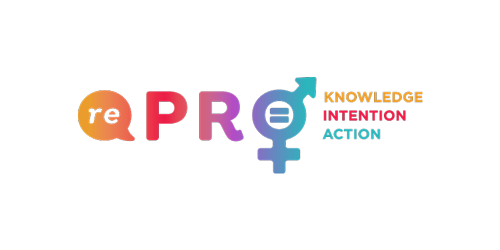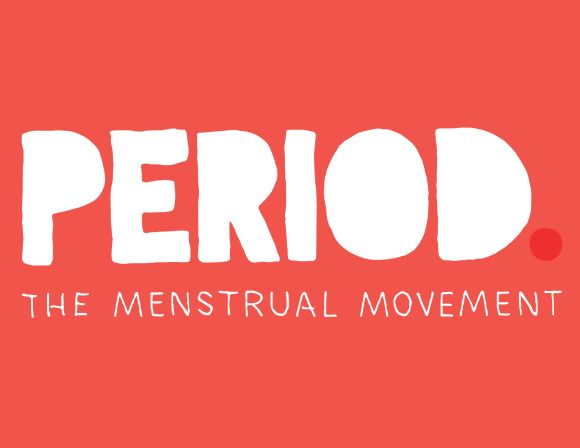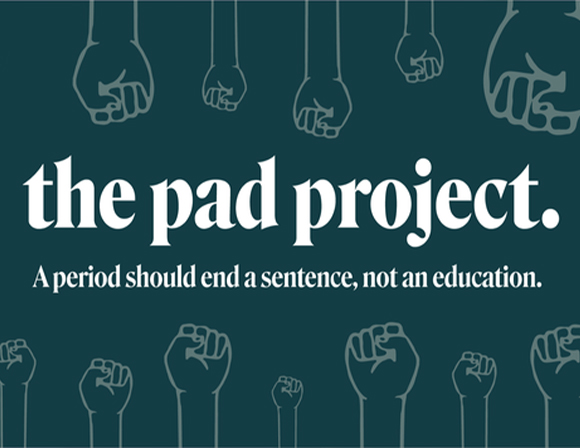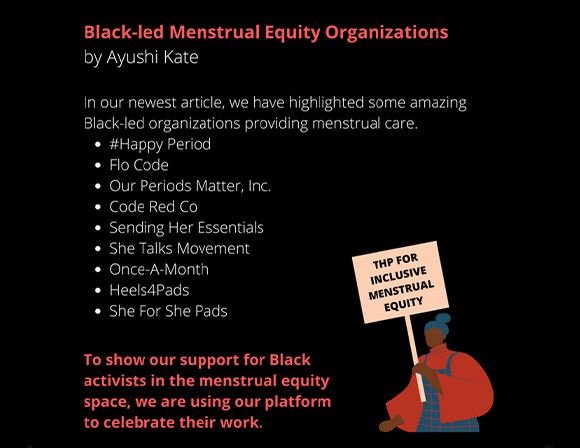Sign up via email or check in on the 15th of each month for the latest volume, film, conversation, and links to organizations we’re loving and things we’re learning about.
- ARTIST SUPPORT
- PERIODICAL
- VOL. 25: YOU’RE GETTING WARMER
- VOL. 24: SHAME IS LAME (BUT RELATABLE)
- VOLUMES 12 – 23
- VOL. 23: HARK! THE LEGAL ANGELS SING
- VOL. 22: BRINGING DOULAS INTO PRISONS
- VOL. 21: SIMPLY THE BREAST
- VOL. 20: COMMUNITIES NEED CLINICS
- VOL. 19: PAD PRIDE
- VOL. 18: XYZs of STIs
- VOL. 17: TAKING PRIDE IN PARENTHOOD
- VOL. 16: MOTHER’S DAY IS COMING: HERE ARE OUR DEMANDS
- VOL. 15: UNMARRIED & UNAPOLOGETIC
- VOL. 14: REWRITING THE SCRIPT
- VOL. 13: THINK ABOUT THE CHILDREN
- VOL. 12: REPRODUCTIVE JUSTICE AND NEW BEGINNINGS
- VOLUMES 01 – 11
- VOL. 11: PUBERTY AND OTHER FAMILY MATTERS
- VOL. 10: DEAR ALLIES, WE LOVE YOU
- VOL. 09: A NEW NARRATIVE FOR SEX ED
- VOL. 08: THE ENDURING POWER OF PLEASURE
- VOL. 07: REPRO JUSTICE MEANS SUPPORTING PARENTS, TOO
- VOL. 06: THE FIGHT OF OUR LIVES
- VOL. 05: AAPI IN THE REPRO CONVO
- VOL. 04: PERIODS ARE NORMAL – PERIOD.
- VOL. 03: GETTING FIRED UP FOR ENDO
- VOL. 02: CELEBRATING BLACK MATERNAL HEALTH
- VOL. 01: ABORTION IS COMMUNITY
- PODCAST
- BLACK MADONNA – Morgan Jerkins & Zora Schiltz Rouse
- with sexologist Tyomi Morgan
- LABOR + JUSTICE – Sara Joy Byington
- THE BOND – Jahmil Eady
- TOUCH – Ricki Fairley
- ALWAYS AND FOREVER – Lara Everly, Jessica Stamen and Elease Lui Stemp
- LONG LINE OF LADIES – Shaandiin Tome & Rayka Zehtabchi
- PREVIOUS EPISODES
- WHO GETS TO PARENT? – Timmia & Pere DeRoy
- SIMONE – Aisha Aiman
- COUNTERFEIT KUNKOO – Reema Maya Sengupta
- MY YEAR OF DICKS – Pamela Ribon & Sara Gunnarsdóttir
- REHEARSAL – Courtney Hope Thérond
- MISO – Kelly Walker, Mariah Bess & Alex Sgambati
- LA MACANA – Maria Mealla
- OUTSIDE THE GENDER CONSTRUCT – Kevin Shane
- SWEET POTATOES – Rommel Villa
- SEX ED – Dr. Julia VanRooyen
- HEROINES – Katia Badalian
- MARCY LEARNS SOMETHING NEW – Julia Kennelly
- PLACENTA PATÉ – Tia Salisbury
- UNDUE BURDENS – Andrea Raby & Marie Khan
- AAPI IN THE REPRO CONVO – Lilly Hu & Seri Lee
- A PERIOD PIECE – Shuchi Talati
- ON THE DIVIDE – Maya Cueva & Leah Galant
- END-O – Elaine Gracie
- THE ENDO CO feat. Jenne Rishe
- REBYRTH – Cydney Tucker and Imani Byers
- THIS IS NOT A LOVE LETTER feat. Ariel Zucker, Daryl Paris Bright, & Isabel Pask
- PLAYLIST
- FILM ARCHIVE
- ASK AN EXPERT
- Interview with Bea Höller [Klimax & DarkChocolate]
- REEL TALK
- Reel Talk with Dr. Julia [Labor+Justice]
- Reel Talk with Dr. Julia [Always and Forever]
- Reel Talk with Dr. Julia [Long Line of Ladies]
- Reel Talk with Dr. Julia [Rehearsal]
- Reel Talk with Dr. Julia [Who Gets To Parent?]
- Reel Talk with Dr. Julia [Summer Fridays]
- Sexual fantasies from a teenage girl’s perspective [My Year of Dicks]
- Jimanekia Eborn of Tending the Garden
- Nisha Ahuja
- 6 Things A Midwife Wants You To Know About Pleasure
- Storyteller Kristen Morley on using virtual reality to tell her abortion story
- The ‘Sweet Genius’ of Agnès Varda & the Pleasure of Female Friendship By Laura Lee Bahr
- Talking About Consent
- The Key To Normalizing Conversations About Periods
- MY ENDO STORY: A REPRO ORIGINAL ESSAY.
- OUR STORY
- SUPPORT
- The Screening Womb
- ARTIST SUPPORT
- PERIODICAL
- VOL. 25: YOU’RE GETTING WARMER
- VOL. 24: SHAME IS LAME (BUT RELATABLE)
- VOLUMES 12 – 23
- VOL. 23: HARK! THE LEGAL ANGELS SING
- VOL. 22: BRINGING DOULAS INTO PRISONS
- VOL. 21: SIMPLY THE BREAST
- VOL. 20: COMMUNITIES NEED CLINICS
- VOL. 19: PAD PRIDE
- VOL. 18: XYZs of STIs
- VOL. 17: TAKING PRIDE IN PARENTHOOD
- VOL. 16: MOTHER’S DAY IS COMING: HERE ARE OUR DEMANDS
- VOL. 15: UNMARRIED & UNAPOLOGETIC
- VOL. 14: REWRITING THE SCRIPT
- VOL. 13: THINK ABOUT THE CHILDREN
- VOL. 12: REPRODUCTIVE JUSTICE AND NEW BEGINNINGS
- VOLUMES 01 – 11
- VOL. 11: PUBERTY AND OTHER FAMILY MATTERS
- VOL. 10: DEAR ALLIES, WE LOVE YOU
- VOL. 09: A NEW NARRATIVE FOR SEX ED
- VOL. 08: THE ENDURING POWER OF PLEASURE
- VOL. 07: REPRO JUSTICE MEANS SUPPORTING PARENTS, TOO
- VOL. 06: THE FIGHT OF OUR LIVES
- VOL. 05: AAPI IN THE REPRO CONVO
- VOL. 04: PERIODS ARE NORMAL – PERIOD.
- VOL. 03: GETTING FIRED UP FOR ENDO
- VOL. 02: CELEBRATING BLACK MATERNAL HEALTH
- VOL. 01: ABORTION IS COMMUNITY
- PODCAST
- BLACK MADONNA – Morgan Jerkins & Zora Schiltz Rouse
- with sexologist Tyomi Morgan
- LABOR + JUSTICE – Sara Joy Byington
- THE BOND – Jahmil Eady
- TOUCH – Ricki Fairley
- ALWAYS AND FOREVER – Lara Everly, Jessica Stamen and Elease Lui Stemp
- LONG LINE OF LADIES – Shaandiin Tome & Rayka Zehtabchi
- PREVIOUS EPISODES
- WHO GETS TO PARENT? – Timmia & Pere DeRoy
- SIMONE – Aisha Aiman
- COUNTERFEIT KUNKOO – Reema Maya Sengupta
- MY YEAR OF DICKS – Pamela Ribon & Sara Gunnarsdóttir
- REHEARSAL – Courtney Hope Thérond
- MISO – Kelly Walker, Mariah Bess & Alex Sgambati
- LA MACANA – Maria Mealla
- OUTSIDE THE GENDER CONSTRUCT – Kevin Shane
- SWEET POTATOES – Rommel Villa
- SEX ED – Dr. Julia VanRooyen
- HEROINES – Katia Badalian
- MARCY LEARNS SOMETHING NEW – Julia Kennelly
- PLACENTA PATÉ – Tia Salisbury
- UNDUE BURDENS – Andrea Raby & Marie Khan
- AAPI IN THE REPRO CONVO – Lilly Hu & Seri Lee
- A PERIOD PIECE – Shuchi Talati
- ON THE DIVIDE – Maya Cueva & Leah Galant
- END-O – Elaine Gracie
- THE ENDO CO feat. Jenne Rishe
- REBYRTH – Cydney Tucker and Imani Byers
- THIS IS NOT A LOVE LETTER feat. Ariel Zucker, Daryl Paris Bright, & Isabel Pask
- PLAYLIST
- FILM ARCHIVE
- ASK AN EXPERT
- Interview with Bea Höller [Klimax & DarkChocolate]
- REEL TALK
- Reel Talk with Dr. Julia [Labor+Justice]
- Reel Talk with Dr. Julia [Always and Forever]
- Reel Talk with Dr. Julia [Long Line of Ladies]
- Reel Talk with Dr. Julia [Rehearsal]
- Reel Talk with Dr. Julia [Who Gets To Parent?]
- Reel Talk with Dr. Julia [Summer Fridays]
- Sexual fantasies from a teenage girl’s perspective [My Year of Dicks]
- Jimanekia Eborn of Tending the Garden
- Nisha Ahuja
- 6 Things A Midwife Wants You To Know About Pleasure
- Storyteller Kristen Morley on using virtual reality to tell her abortion story
- The ‘Sweet Genius’ of Agnès Varda & the Pleasure of Female Friendship By Laura Lee Bahr
- Talking About Consent
- The Key To Normalizing Conversations About Periods
- MY ENDO STORY: A REPRO ORIGINAL ESSAY.
- OUR STORY
- SUPPORT
- The Screening Womb
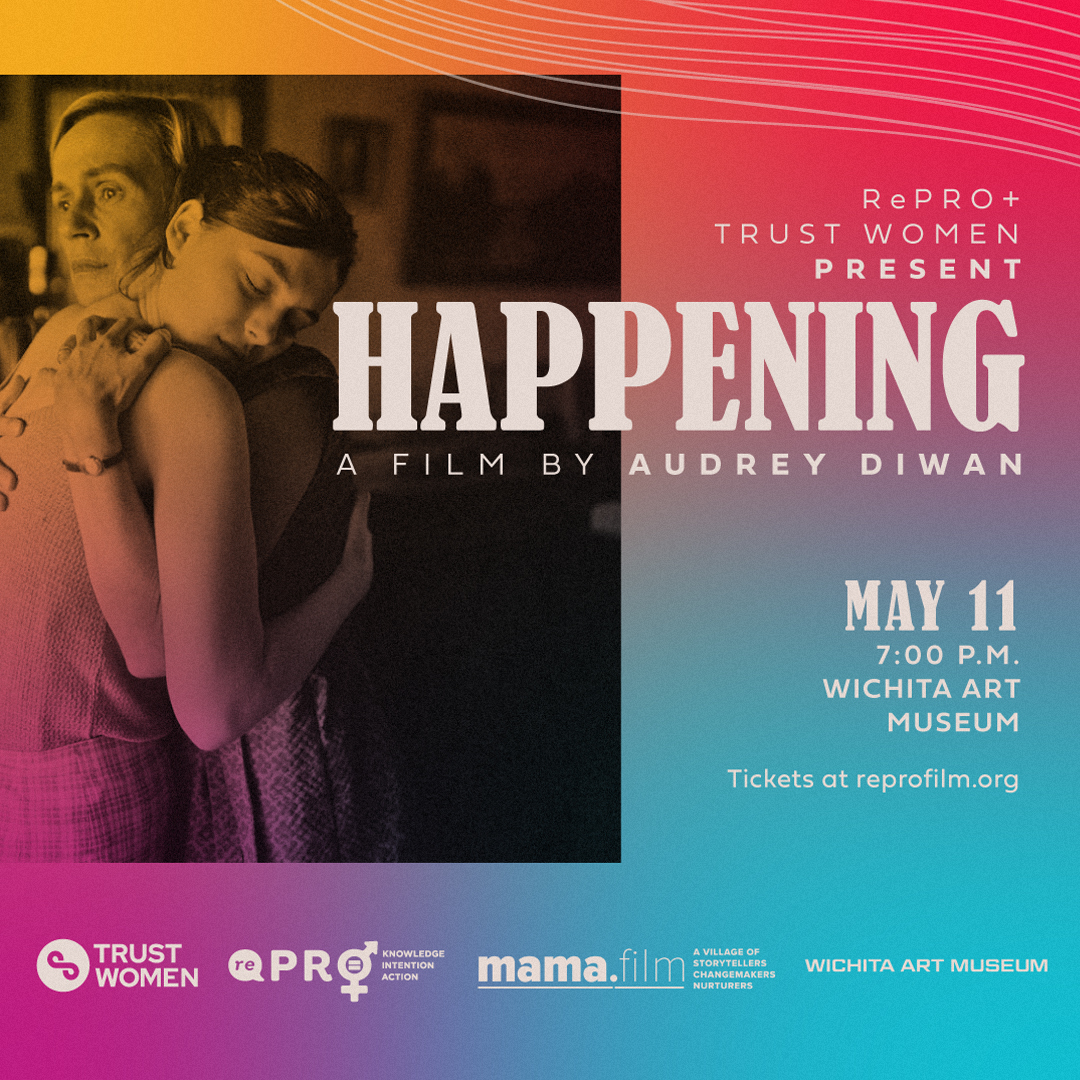
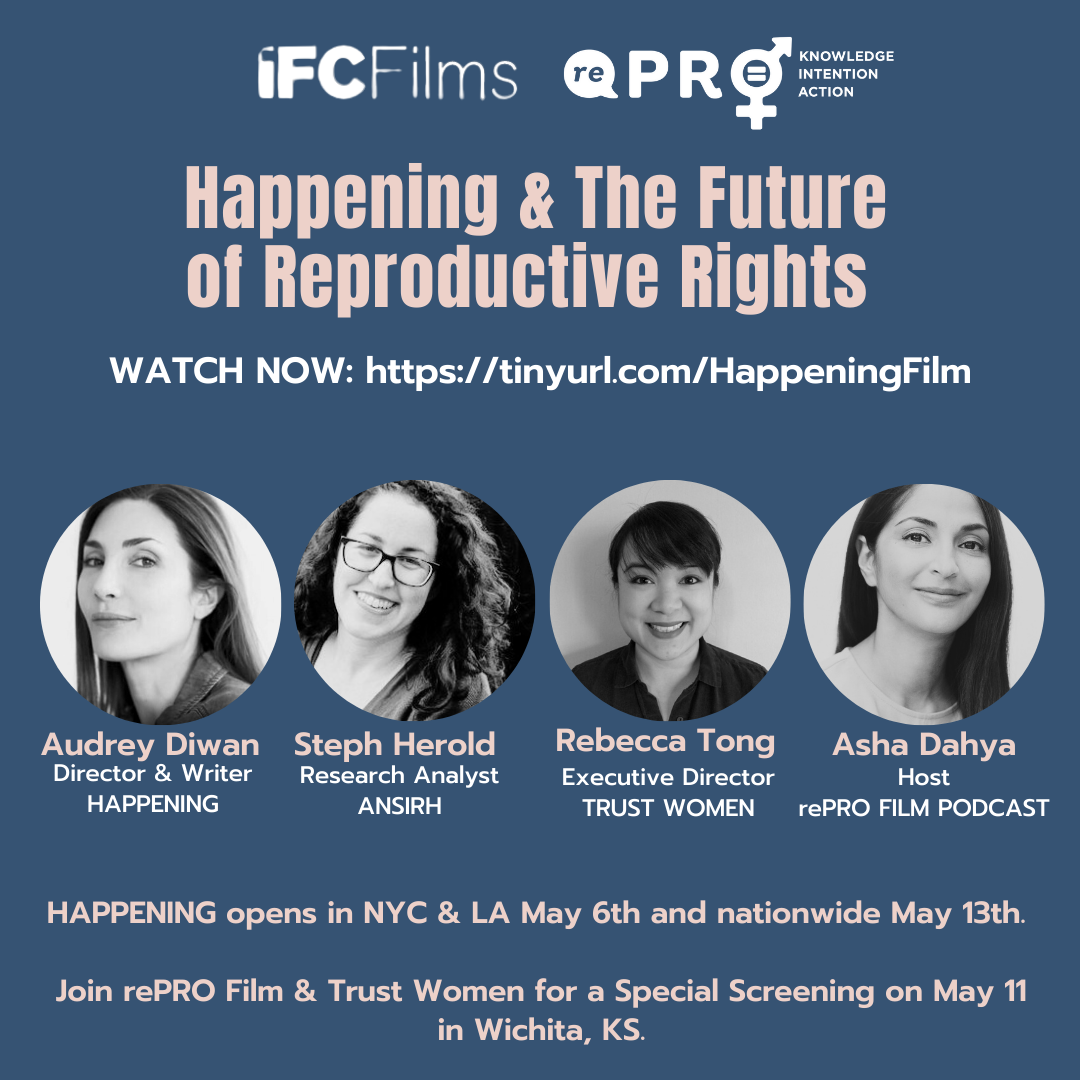

Vol. 4:
THE LAST WORD ON PERIODS.
About 50% of the population will have, currently has, or once had a menstrual cycle. It’s simply a basic bodily function for lots of us. Until recently, we didn’t talk about it a lot, though, and we certainly didn’t watch movies about that time of the month.
We’re thrilled that’s all changing. Films like this month’s 12-minute pick, “A Period Piece” center menstruation in on-screen storytelling.
Admittedly, we have a ways to go: period taboos are still a thing, and too many people suffer from “period poverty” and lack of access to products. See below for stories about how members of Gen Z are leading the way on these issues.
With curiosity & care,
With openness & inspiration,
~ xo Team rePRO
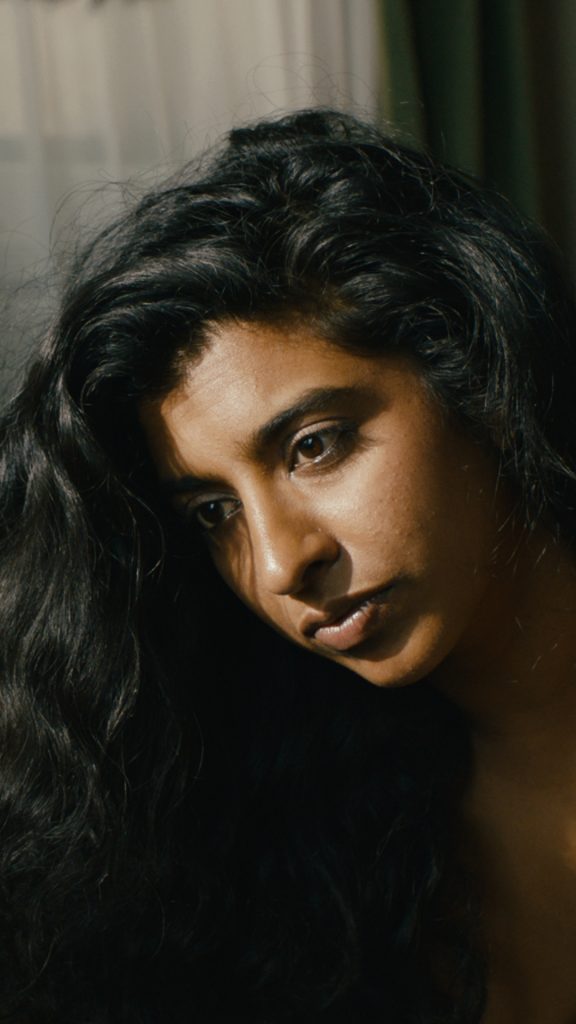

A PERIOD PIECE
Directed by Shuchi Talati (12 min)
Consider this your official reminder that you still have two weeks to watch “A Period Piece,” an awkward, human and ultimately kind of sexy story about period sex. When they stain a spotless couch mid-coitus, tensions between Geetha and Vehd escalate one overly warm afternoon. We love that this portrayal of South Asians skips tired cultural cliches, and we’re looking forward to following Talati’s next moves.
PERIODICAL PODCAST EPISODE 4: A PERIOD PIECE
with special guest Shuchi Talati, hosted by Asha Dahya
Have you heard the most recent Periodical podcast? Catch the conversation between Asha Dahya and Shuchi Talati, director of “A Period Piece,” anywhere you listen to podcasts. Bonus: Talati teases her upcoming feature film, a coming-of-age story set in a girls’ school in India.
“I want space for (South Asians) to tell stories that are kind of universal, because I think that only having a limited kind of narrative … robs us of our full scope of humanity.”
Shuchi Talati is originally from India and her work challenges dominant narratives around gender, sexuality, race and South Asian identity. Shuchi is also a writer / producer for documentaries. Recent credits include We Are: Brooklyn Saints for Netflix, and Wyatt Cenac’s Problem Areas for HBO, where one of Shuchi’s episodes was nominated for a GLAAD award.

STUDENT EFFORTS BRING FREE PERIOD PRODUCTS TO CAMPUS
Student leaders are working to combat “period poverty” at colleges across the U.S., including Northern Arizona University, where free menstrual products will be distributed in 184 gender-neutral bathrooms. The administration has allotted $50,000 annually for product and upkeep. Gen Z, we really do <3 you.
MUSICIAN FREDDIE LEWIS ON DEALING WITH PERIODS AS A TRANS MAN
Trans men who menstruate face a bonus set of challenges, both emotional and practical (e.g., there’s no designated place to dispose of pads in a men’s room). “Cis people tend to forget when they’re talking about periods that there are actually a lot of trans men, non-binary and trans-masculine people who also bleed.”
(BBC News)
The current state of the tampon tax—and how we’re going to eliminate it
Classifying tampons and pads as luxury products has tax implications, too. “Because of this tax, [menstruators] in the United States are estimated to spend an additional $150 million per year on menstrual products.” Click through to find out the status of tampon taxation on your state.
Opinion: In prison, having your period can put your life in danger
Nearly a quarter million women are imprisoned in the U.S., and many do not have reliable access to basic hygiene products. This makes incarcerated women susceptible to both health problems and coercion. “Menstrual equity is a human right,” writes epidemiologist and activist Gabrielle A. Perry. “Incarcerated women’s lack of access to menstrual products is a public health and humanitarian crisis.”
Moms are furious that ‘Turning Red’ introduces periods to their sons
In Pixar’s recent feature “Turning Red,” a giant panda serves as a metaphor for puberty. The movie references menstruation and includes period products in one scene, which has certain parents seeing red.
This period company hid tampons and pads inside cereal boxes to point out how inaccessible period products are
Federal anti-poverty programs WIC and SNAP (AKA food stamps) don’t cover tampons and pads, which is partly why 25% of menstruating teenagers in the U.S. don’t have access to period products. A marketing firm underlined this problem with “Loop Holes,” a fictional breakfast cereal that comes with tampons and pads in every box. We’re ready to put these on our grocery lists, but we’ll settle for letting our representatives in Washington know that tampons and pads should not be classified as luxury products.
MENSTRUATION GETS A GEN Z MAKEOVER
At the crossroads of period positivity and sustainability, young people are leading a revolution in how to manage our menses. “Young people want alternatives to disposable tampons and pads — and they’re not embarrassed to talk about it.”
Period.org
PERIOD. is a youth-fueled nonprofit that strives to eradicate period poverty and stigma through service, education, and advocacy. Through the distribution of menstrual products, promotion of youth leadership, and championing of menstrual equity in policy, PERIOD. aims to center those disproportionately affected by period poverty and support local efforts for menstrual equity.
The Pad Project
The Pad Project takes a community-based approach to closing the menstrual product gap worldwide. We’re partial to this org in part because it began with a short film, “Period. End of Sentence.,” which won an Oscar in 2019.
Black-led menstrual equity organizations
Organizers across the U.S. and the world are working to close the the horrifying and utterly unnecessary period product gap. There might be one serving your area — try googling “menstrual equity [city/state name]” and see what comes up. If you’re looking for an organization to support, this is a handy list of Black-led initiatives.
UNDERWRITERS
Many thanks to the additional underwriters who have joined us, allowing the rePRO team to bring you the Periodical for free each month.
